
Albert "Tootie" Heath was an American jazz hard bop drummer, the brother of tenor saxophonist Jimmy Heath and the double-bassist Percy Heath. With Stanley Cowell, the Heaths formed the Heath Brothers jazz band in 1975.

Monk's Music is a jazz album by the Thelonious Monk Septet, which for this recording included Coleman Hawkins and John Coltrane. It was released in November 1957 through Riverside Records. The recording was made in New York City on June 26, 1957.

The Incredible Jazz Guitar of Wes Montgomery is an album by the American jazz guitarist Wes Montgomery. Most of its tracks exemplify two of Montgomery's distinguishing techniques: "thumb picking" and the use of octaves.

That's My Story is a studio album by American blues musician John Lee Hooker, released in April or May 1960 on Riverside Records. The album was recorded in one session on February 9, 1960 at Reeves Sound Studio in New York City. It was produced by Orrin Keepnews and features the rhythm section from saxophonist Cannonball Adderley's group, which included bassist Sam Jones and drummer Louis Hayes.

Samuel Jones was an American jazz double bassist, cellist, and composer.
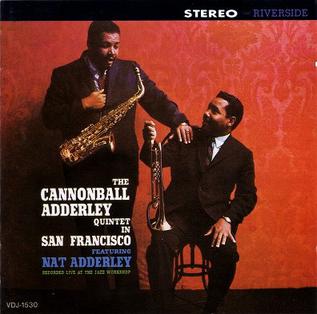
The Cannonball Adderley Quintet in San Francisco is a 1959 album by The Cannonball Adderley Quintet.
Leslie Spann Jr. was an American jazz guitarist and flautist. As a sideman he recorded with Nat Adderley, Benny Bailey, Bill Coleman, Eddie "Lockjaw" Davis, Curtis Fuller, Red Garland, Benny Goodman, Sam Jones, Abbey Lincoln, Charles Mingus, Duke Pearson, Jerome Richardson, Charlie Shavers, Sonny Stitt, Billy Taylor, Randy Weston, and Ben Webster. As a leader he recorded only once, the album Gemini in 1961.
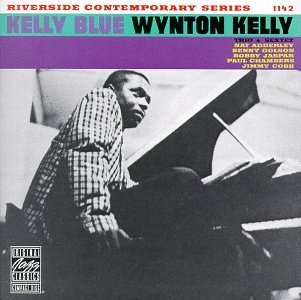
Kelly Blue is an album by American jazz pianist Wynton Kelly, released in 1959.

The Cannonball Adderley Sextet in New York is a live album by jazz saxophonist Cannonball Adderley recorded at the Village Vanguard and released on the Riverside label featuring performances by Adderley with Nat Adderley, Yusef Lateef, Joe Zawinul, Sam Jones and Louis Hayes.

African Waltz is an album by jazz saxophonist Cannonball Adderley, released on the Riverside label and performed by Adderley with an orchestra conducted by Ernie Wilkins. The title track had been a UK hit single for Johnny Dankworth.

At the Blackhawk is a live album by American jazz pianist Thelonious Monk recorded on April 29, 1960 at the Black Hawk and released on Riverside later that year.
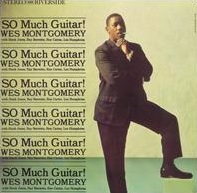
So Much Guitar! is an album by American jazz guitarist Wes Montgomery, released by Riverside Records in 1961. It was reissued by Fantasy Records as a part of the Original Jazz Classics series.

Movin' Along is an album by American jazz guitarist Wes Montgomery, released in April 1961. It was reissued in the Original Jazz Classics series with two alternate takes. All the tracks are available in the Wes Montgomery compilation CD-set The Complete Riverside Recordings.

The Complete Riverside Recordings is a box set of American jazz guitarist Wes Montgomery's early recordings on the Riverside label. It is a twelve-CD box set and was released in 1992. It contains 157 songs and includes 15 previously unissued performances, six re-edited versions of previously issued numbers and 29 alternate takes. The extensive liner notes by producer Orrin Keepnews and Jim Ferguson, session notes, and photographs. Keepnews and Ferguson received a Grammy Award nomination for Best Album Notes.

That's Right! is an album by jazz cornetist Nat Adderley and the Big Sax Section released on the Riverside label featuring Adderley with his brother Cannonball Adderley, Jimmy Heath, Charlie Rouse, Yusef Lateef, Tate Houston, Wynton Kelly, Jim Hall/Les Spann, Sam Jones, and Jimmy Cobb.
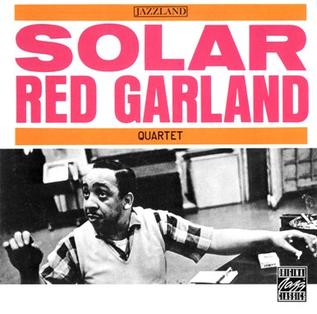
Solar is an album by jazz musician Red Garland, recorded in 1962 and released the same year on Jazzland as JLP 73.

The Chant is the second album by bassist and cellist Sam Jones featuring performances recorded in early 1961 and originally released on the Riverside label.

Really Big! is the second album by saxophonist Jimmy Heath featuring big band performances recorded in 1960 and originally released on the Riverside label.
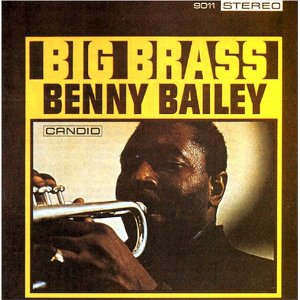
Big Brass is an album by trumpeter Benny Bailey featuring performances recorded in late 1960 and originally released on the Candid label.

Wingspan is an album by jazz pianist Mulgrew Miller with a quintet of other musicians. The album was recorded on May 11, 1987, and released later that year by Landmark Records.



















